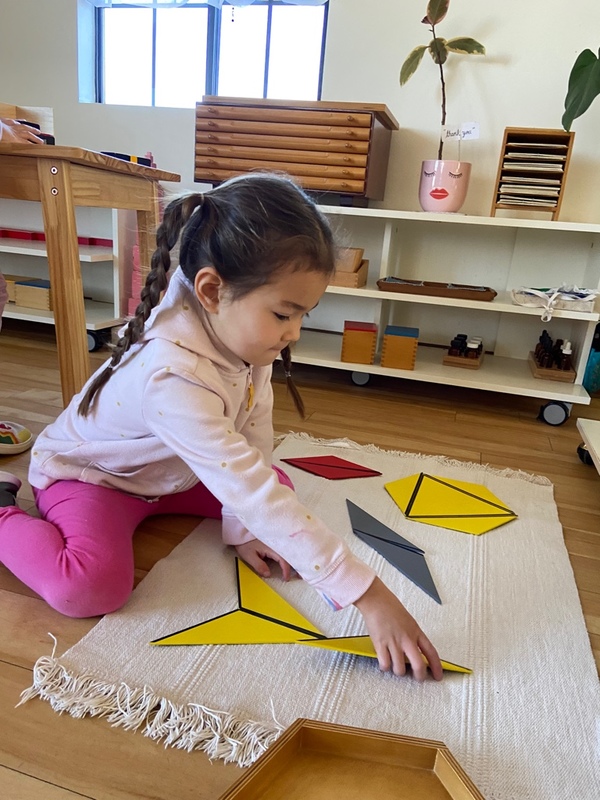(858) 759-0631
Travel season is here, and this is always full of excitement and celebrations, as well as stress and preparations. We expect many families would take these opportunities to travel, and therefore we would like to share some pieces of Montessori philosophy that will help you prepare for travels.
On the go… The airplane/car/bus will temporarily become a classroom for your kids. This is an exciting new environment. But, unfortunately, this environment doesn’t fully satisfy your child’s needs as the need to move freely and sometimes even requires them to be restricted. Although children quickly adapt to the rules of new environments, explaining the “rules” of the environment beforehand will more likely help you avoid tantrums and meltdowns.
Traveling with Children
Preparing beforehand means that the child must be included in the preparation process. Children must be able to pack their own “fun” backpack, make choices (mess-free markers, sticker books, little box with play dough, a few most favorite toys, scratch art paper), and carry this bag/backpack.
Set your mind still to provide a calm atmosphere, have a good sleep night before, and prepare to answer a million questions from your curious little one. Arriving at the airport early can help decrease stress and allow children to stretch their legs before a long flight. Take care of basic needs: check in all bags leaving just a small backpack with snacks (as well as lollypops or chewing gum for take-offs and landings), water bottles, and devices. Finally, take good care of yourself, remember “put your mask on first before you help others”!
The hotel becomes your “second home”
When you finally arrive at your hotel/grandparents’ house/tent, it is expected that life will be out of typical routine, although try to maintain the rhythm and routine you have at home (reading the same book before bed, keeping up with nap schedule). Sometimes children will ask you to stay up longer, and it will be your call to agree or disagree, although it will likely set them off the next day, and no one will have a good experience. Explaining to the child that you want them to feel well and be ready for more fun days can help them to be more agreeable. Try to set up a “station” for independent play (for example, pieces of paper with crayons), accessible snack options, and accessible clothes change in case of a spill.
Explore
Plan your trip with children in mind and always have some time in the day “reserved” for them. Make it routine. Children are curious about everything: the spider you found on the ceiling, parts of plants, the way the sand feels, and old postcards in grandma’s house. Help them explore by following their lead!
We can’t wait to hear about your adventures!
-Centipede Teacher

